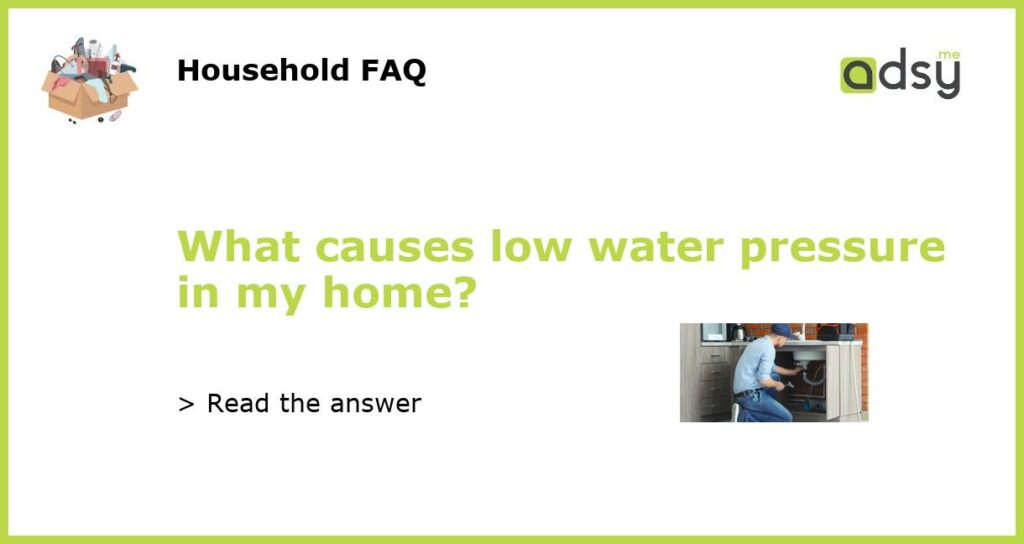Causes of Low Water Pressure in Your Home
Low water pressure can be a frustrating issue to deal with in your home. Whether you’re struggling to wash dishes or take a shower, understanding the causes of low water pressure can help you address the problem and improve water flow throughout your home. Here are some common reasons for low water pressure.
Clogged Pipes or Faucets
One of the most common causes of low water pressure is clogged pipes or faucets. Over time, minerals and debris can build up in your plumbing system, restricting the flow of water. This is especially common in areas with hard water, which contains high levels of minerals like calcium and magnesium. If you notice a decrease in water pressure, try cleaning or replacing clogged faucets or showerheads. Alternatively, you may need to hire a professional plumber to clean out your pipes and remove any blockages.
Leaky Pipes
Leaky pipes can also cause low water pressure in your home. When pipes develop leaks, water can escape before it reaches your faucets, resulting in reduced water pressure. Leaks can occur due to old age, corrosion, or damage from freezing temperatures. If you suspect a leak in your plumbing system, it’s important to address it promptly to prevent further damage and restore proper water pressure. Hire a plumber to inspect your pipes and fix any leaks that are found.
Municipal Water Supply Issues
In some cases, low water pressure may be caused by issues with the municipal water supply. Municipal water systems sometimes experience problems such as main breaks, routine maintenance, or changes in water pressure due to high demand. If you’re experiencing low water pressure and suspect it may be a result of an issue with the municipal water supply, contact your local water utility for more information. They can inform you of any known issues and provide an estimate of how long the problem is expected to last.
Water Pressure Regulator Problems
A malfunctioning water pressure regulator can also contribute to low water pressure in your home. The water pressure regulator is a valve that controls the water pressure coming into your home from the municipal water supply. If the regulator becomes faulty or fails, it can lead to low water pressure throughout your home. If you suspect an issue with the water pressure regulator, it’s best to call a professional plumber to inspect and repair it to restore proper water flow.
Plumbing System Design or Sizing
Lastly, the design or sizing of your plumbing system may be the cause of low water pressure. If your home has insufficient plumbing or your pipes are too narrow, it can limit the amount of water that can flow through your system. This can result in low water pressure throughout your home. It’s best to consult with a professional plumber to assess the design and size of your plumbing system. They can make recommendations for improvements to increase water pressure.
Low water pressure in your home can be a frustrating issue, but identifying the underlying causes can help you address the problem effectively. Whether it’s clogged pipes, leaky plumbing, issues with the municipal water supply, a malfunctioning water pressure regulator, or problems with your plumbing system’s design or sizing, understanding the source of the issue is the first step towards resolving it and improving water flow in your home.

